Schedule a Call Back
Automotive component sector: Eyeing assured growth
 Technical Articles
Technical Articles- Jun 07,16
 All the recent reports about the automotive components’ industry point at a substantial increase in demand from OEMs over the next few years. A report
All the recent reports about the automotive components’ industry point at a substantial increase in demand from OEMs over the next few years. A report
“India is a great test in terms of competitiveness. I am a big admirer of engineering in India because Indians have a particular skill and gift in frugal engineering,” says Carlos Ghosn, Group CEO, Renault-Nissan Alliance. This statement more or less sums up the sentiment in the automotive component industry for the coming years even as India keeps striding towards becoming one of the major automotive hubs in the world. The Indian automotive components industry has experienced healthy growth over the last few years. Some of the factors attributable to this include a buoyant end-user market, improved consumer sentiment and return of adequate liquidity in the financial system.
This sector accounts for almost 7% of India’s Gross Domestic Product (GDP) and employs as many as 19 million people, both directly and indirectly. A stable government framework, increased purchasing power, large domestic market, and an ever increasing development in infrastructure have made India a favourable destination for investment. The Indian automotive components industry can broadly be classified into the organised and unorganised sectors. The organised sector caters to the original equipment manufacturers (OEMs) and consists of high-value precision instruments while the unorganised sector comprises low-valued products and caters mostly to the aftermarket category.
 According to a report published by the India Brand Equity Foundation (IBEF), over the last decade, the automotive components industry has scaled three times to USD 40 billion in 2015 while exports have grown even faster to USD 11 billion. This has been driven by strong growth in the domestic market and increasing globalisation (including exports) of several Indian suppliers. According to the Automotive Component Manufacturers Association of India (ACMA), the Indian automotive components industry is expected to register a turnover of USD 100 billion by 2020 backed by strong exports ranging between USD 80-100 billion by 2026, from the current USD 11.2 billion. The cumulative foreign direct investment (FDI) inflows into the Indian automobile industry during the period April 2000-December 2015 were recorded at USD 14.32 billion, as per data by the Department of Industrial Policy and Promotion (DIPP).
According to a report published by the India Brand Equity Foundation (IBEF), over the last decade, the automotive components industry has scaled three times to USD 40 billion in 2015 while exports have grown even faster to USD 11 billion. This has been driven by strong growth in the domestic market and increasing globalisation (including exports) of several Indian suppliers. According to the Automotive Component Manufacturers Association of India (ACMA), the Indian automotive components industry is expected to register a turnover of USD 100 billion by 2020 backed by strong exports ranging between USD 80-100 billion by 2026, from the current USD 11.2 billion. The cumulative foreign direct investment (FDI) inflows into the Indian automobile industry during the period April 2000-December 2015 were recorded at USD 14.32 billion, as per data by the Department of Industrial Policy and Promotion (DIPP).
Recent investments
 Some of the major investments made into the Indian automotive components sector over the past one year include automotive components’ maker Bharat Forge Ltd (BFL), the flagship company of the USD 3 billion Kalyani Group, formalising an agreement with Rolls-Royce Plc which will supply BFL with critical and high integrity forged and machined components. Meanwhile, Canada’s Magna International Incorporated has started production at two facilities in Gujarat’s Sanand, which will supply automotive parts to Ford Motor Co. in India. Jim Tobin, Chief Marketing Officer and President of Magna Asia, says it is a multi-million dollar project with scope for expansion, without specifying the investment in the two units. “The company currently has 285 manufacturing locations globally, of which 11 are in India. About 116 plants across the globe supply to Ford. We are looking at the next phase of growth to come from India,” he adds.
Some of the major investments made into the Indian automotive components sector over the past one year include automotive components’ maker Bharat Forge Ltd (BFL), the flagship company of the USD 3 billion Kalyani Group, formalising an agreement with Rolls-Royce Plc which will supply BFL with critical and high integrity forged and machined components. Meanwhile, Canada’s Magna International Incorporated has started production at two facilities in Gujarat’s Sanand, which will supply automotive parts to Ford Motor Co. in India. Jim Tobin, Chief Marketing Officer and President of Magna Asia, says it is a multi-million dollar project with scope for expansion, without specifying the investment in the two units. “The company currently has 285 manufacturing locations globally, of which 11 are in India. About 116 plants across the globe supply to Ford. We are looking at the next phase of growth to come from India,” he adds.
What Tobin is optimistic about is that the Indian automobile market is estimated to grow from 4 million units currently to about 12 million units by 2030. At one of the new Sanand facilities, Magna Asia assembles and provides just-in-time deliveries of complete seat systems for Ford. The 2,15,000 sq.ft plant is expected to employ approximately 200 people at full production, building approximately 2,40,000 complete seat systems per year. At the second facility in Sanand, Magna will build body and chassis systems for Ford. In further developments, Everstone Capital, a Singapore-based private equity (PE) firm, has purchased 51% in Indian automotive components’ maker SJS Enterprises for an estimated Rs 350 crore while ArcelorMittal signed a joint venture agreement with Steel Authority of India Ltd (SAIL) to establish an automotive steel manufacturing facility in India.
 The interest from MNCs in the Indian automotive component industry is definitely visible. German automotive components’ maker Bosch Ltd opened its new factory at Bidadi, near Bengaluru, which is its fifth manufacturing plant in Karnataka. The company has also signed a memorandum of understanding (MoU) with the Indian Institute of Science (IISc), Bengaluru with a view to strengthen Bosch’s research and development activities. “These partnerships symbolise Bosch’s innovation focus in India. It will increase our problem-solving capabilities, and at the same time the collaboration will result in sharing our learnings for the benefit of society. I believe it is absolutely essential for the growth of innovation in India,” comments Vijay Ratnaparkhe, President, Bosch Engineering and Business Solutions.
The interest from MNCs in the Indian automotive component industry is definitely visible. German automotive components’ maker Bosch Ltd opened its new factory at Bidadi, near Bengaluru, which is its fifth manufacturing plant in Karnataka. The company has also signed a memorandum of understanding (MoU) with the Indian Institute of Science (IISc), Bengaluru with a view to strengthen Bosch’s research and development activities. “These partnerships symbolise Bosch’s innovation focus in India. It will increase our problem-solving capabilities, and at the same time the collaboration will result in sharing our learnings for the benefit of society. I believe it is absolutely essential for the growth of innovation in India,” comments Vijay Ratnaparkhe, President, Bosch Engineering and Business Solutions.
Further, French tyre manufacturer Michelin announced plans to produce 16,000 tonnes of truck and bus tyres from its Indian facility this year, a 45% rise from last year. Amtek Auto Ltd acquired Germany-based Scholz Edelstahl GmbH through its 100% Singapore-based subsidiary Amtek Precision Engineering Pte Ltd. MRF Ltd plans to invest Rs 4,500 crore in its two factories in Tamil Nadu as part of its expansion plan. German luxury car maker Bayerische Motoren Werke AG’s ( BMW) announced it will start sourcing parts from at least seven India-based automotive parts’ makers in response to promote ‘Make in India’; and Hero MotoCorp is investing Rs 5,000 crore in five manufacturing facilities across India, Colombia and Bangladesh to increase its annual production capacity to 12 million units by 2020. These are substantial investments and may well justify a statement released by ratings agency ICRA which states that the Indian automotive component industry could gain momentum and register growth of 8-10% in the coming financial year.
Looking Forward
 Industry experts believe that the Government of India’s Automotive Mission Plan (AMP) 2006-2016 has come a long way in ensuring growth for the sector. It is expected that this sector’s contribution to the GDP will reach USD 145 billion in 2016 due to the government’s special focus on exports of small cars, multi-utility vehicles (MUVs), two and three-wheelers and automotive components. “With the innovations taking place in the transportation sector, new avenues are now coming up for automotive component manufacturers. This includes the new segment of electric, electronic and hybrid cars, which are deemed more efficient, safe and reliable modes of transportation. Of course it is equally necessary that automotive component manufacturers keep changing as per the demands of new technologies,” opines Sudhir Mehta, CMD, Pinnacle Industries, which is engaged in automotive seating, windows and interiors for OEMs like Ashok Leyland, Daimler, Eicher, Mercedes Benz, Scania, SML Isuzu, Tata Motors, Volvo and others.
Industry experts believe that the Government of India’s Automotive Mission Plan (AMP) 2006-2016 has come a long way in ensuring growth for the sector. It is expected that this sector’s contribution to the GDP will reach USD 145 billion in 2016 due to the government’s special focus on exports of small cars, multi-utility vehicles (MUVs), two and three-wheelers and automotive components. “With the innovations taking place in the transportation sector, new avenues are now coming up for automotive component manufacturers. This includes the new segment of electric, electronic and hybrid cars, which are deemed more efficient, safe and reliable modes of transportation. Of course it is equally necessary that automotive component manufacturers keep changing as per the demands of new technologies,” opines Sudhir Mehta, CMD, Pinnacle Industries, which is engaged in automotive seating, windows and interiors for OEMs like Ashok Leyland, Daimler, Eicher, Mercedes Benz, Scania, SML Isuzu, Tata Motors, Volvo and others.
According to ICRA, the medium and heavy commercial vehicle (M&HCV) segment is likely to stay robust but growth could slow to 13-15% given an increased base in FY2016. Also, a sustained uptrend in passenger vehicle demand is expected to push growth for the component industry. Over the medium to long term, growth in the automotive component industry is expected to be higher than the underlying automotive industry given higher localisation by OEMs, higher component content per vehicle, and rising exports from India. While export demand was weak, robust demand for passenger vehicles (PV) in North America as well as Europe is likely to offset the decline in the M&HCV segment in those markets over the next 9-12 months, the report states. “Over the medium term, ICRA expects OPBDIT margin for the automotive component industry to stabilise at 14-14.5% level, given expected bottoming out of commodity prices in the current year. In FY2017, the rural demand (impacting motorcycles, tractors and passenger vehicle segments) will be contingent on monsoon, though government efforts in the Union Budget of FY2017 could benefit the rural economy,” says Subrata Ray, Senior Group Vice President (Corporate Ratings), ICRA.
 With anti-locking braking system (ABS) becoming mandatory in 125cc+ two wheelers from April 2018, the domestic ABS market will witness exponential growth. Also, increasing awareness regarding safety aspects and likely implementation of mandatory crash test for passenger vehicles will further drive demand for ABS in PVs. The ABS market could turn out to be a Rs 6,500 crore opportunity for suppliers by FY2019 in the backdrop of implementation of safety regulations. International players like Bosch, Continental, as well as home-grown majors like Brakes India will be key beneficiaries of the mandatory implementation of ABS for 2W and PVs. At present, ICRA estimates ABS penetration of only 30% in the passenger vehicle segment, while it is minimal in the two-wheeler segment.
With anti-locking braking system (ABS) becoming mandatory in 125cc+ two wheelers from April 2018, the domestic ABS market will witness exponential growth. Also, increasing awareness regarding safety aspects and likely implementation of mandatory crash test for passenger vehicles will further drive demand for ABS in PVs. The ABS market could turn out to be a Rs 6,500 crore opportunity for suppliers by FY2019 in the backdrop of implementation of safety regulations. International players like Bosch, Continental, as well as home-grown majors like Brakes India will be key beneficiaries of the mandatory implementation of ABS for 2W and PVs. At present, ICRA estimates ABS penetration of only 30% in the passenger vehicle segment, while it is minimal in the two-wheeler segment.
The demand for tyres too will push forward the growth curve in the component segment. “Sluggish OEM demand in segments like motorcycles, tractors, and light commercial vehicles on the back of weak agricultural activity and consequent subdued rural demand along with tepid infrastructural activity resulted in a muted 0-2% growth in domestic tyre production during FY16. However, with an expected broad-based revival in OE demand and economic activity, and likely improvement in rural demand, ICRA expects the domestic tyre demand to grow by 4-6% over the next couple of years, i.e., FY16-18,” says Ray. In the truck and bus (T&B) segment, tyre demand from the OE segment remained strong at about 24% during FY16 and in the PV segment, both the OEM (7.2%) and replacement (8.8%) demand was strong in FY16, compared to FY15.
This buoyancy in the automotive components industry was quite evident during the Auto Expo Component Show held this year in New Delhi. A total of 600 international component firms exhibited a range of automobile components and solutions to tap into the rising domestic market, especially the passenger vehicle segment. In the last edition of the Component Show in 2014, 450 foreign exhibitors had participated. The total number of exhibitors, including domestic ones, has grown to 1,500 now against 1,200 in the previous edition. “There is rising interest in international manufacturers to understand trends in India. This will provide a lot of momentum to the component sector,” concludes Vinnie Mehta, Director-General, ACMA.
– HUNED CONTRACTOR
Related Stories
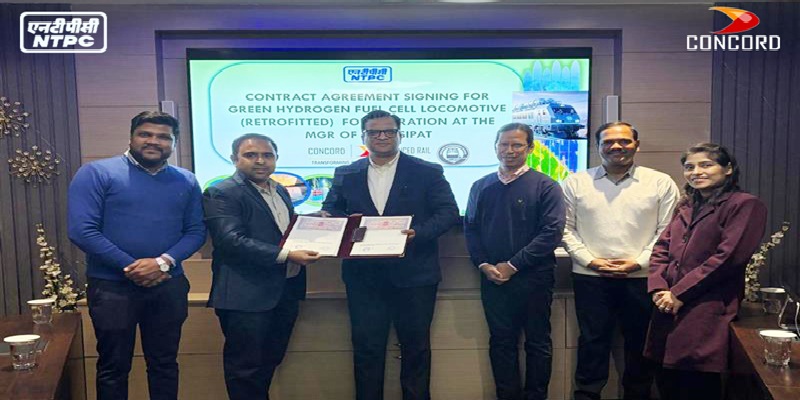
Concord to Develop World’s First 3,100 HP Hydrogen Locomotive System
Concord Control Systems, via its subsidiary ARCPL, will develop the world’s first 3,100 HP hydrogen-fuelled locomotive propulsion system for NTPC, marking a global milestone in green rail mobility..
Read more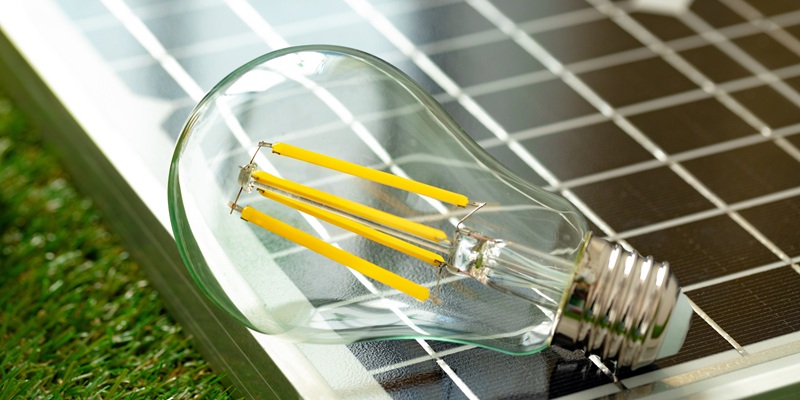
Is your facility ready to handle the energy demands of full automation?
As warehouses scale AI-driven automation, energy demand is emerging as a critical constraint alongside productivity gains. Strategic power planning is now essential, writes Emily Newton.
Read more
SiMa.ai Partners Kaynes Semicon to Advance Physical AI Manufacturing in India
SiMa.ai has partnered with Kaynes Semicon to co-develop Make in India Physical AI systems and defence-focused AI solutions, accelerating adoption across industrial, automotive, aerospace and defence..
Read moreRelated Products
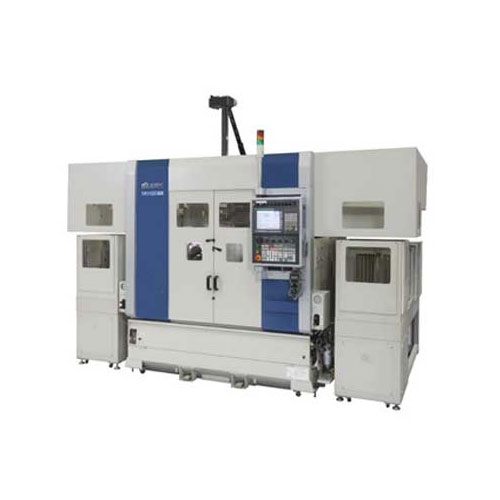
Compact Fmc - Motorum 3048tg With Fs2512
Meiban Engineering Technologies Pvt Ltd offers a wide range of Compact FMC - Motorum 3048TG with FS2512.
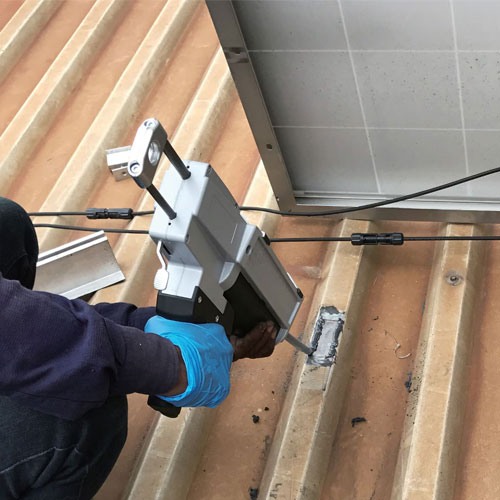
Structural Adhesive for Solar Panel Roof Mounting
Parson Adhesives India Private Ltd offers a wide range of structural adhesive for solar panel roof mounting – Partite 7535.
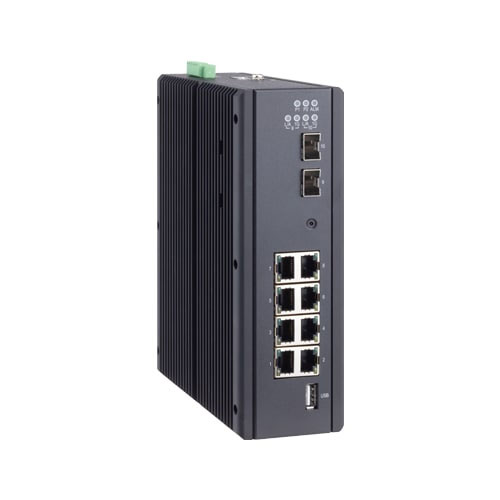
Industrial Tsn Switch
Contec launches a future-ready Industrial TSN Switch- SH-9210TSN.












